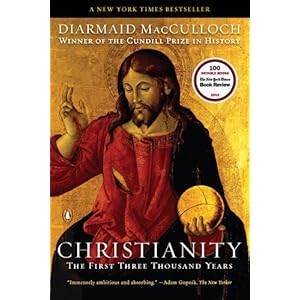 Takeaway: Christians that want to return to the Christianity of the early church probably do not know much about church history.
Takeaway: Christians that want to return to the Christianity of the early church probably do not know much about church history.
Purchase Links: Hardback, Paperback, Kindle Edition, Audible.com Audiobook (If purchasing, you want to think about paperback or audiobook. Kindle is the most expensive option at $29.99)
I am now through the early church history. I have had classes in church history in seminary, I have read multiple books, but I still learned a lot so far. Up through Constantine, church history while not easy to follow is much easier than after Constantine. Pre-Constantine there are less divisions, in part because the whole church is smaller. The section up until Constantine was mostly review for me. I understood fairly well the divisions and had a good idea what was going on. Basically, the cannon was being formed and the church was being institutionalized. For the first 100 years or so, the institution of the church was fairly minimal in part because the church didn’t think they would be around long enough to have an institution.
Much of the next several hundred years the church tried to work out language for the theology that we now think of as common. Theologically I understood much of this from previous study, but MacCulloch talked about translation playing a central role in the theological problems. Latin, Greek and later other languages have slightly different meanings of words. Many of the theological arguments involved fairly minor differences in word, especially troublesome were the various words that meant one or same (around the discussions of the Trinity and Jesus’ being). Some of the issues in Greek and Latin help lead to the Roman Catholic/Orthodox split.
MacCullouch suggests that Constantine had a real, but theologically shallow Christian faith (as opposed to those that suggest that Constantine just had political motivations in becoming a Christian.) Another interesting factor is that since MacCullouch is not a Christian he does not have a theological background to push and is much more open to groups that are traditionally called heretical being a part of actual Christian faith. Admittedly he does not have a the theological right to define heresy, but he does have a good understanding of the issues and suggests that the differences were more cultural/linguistic than theological. The theological differences in some cases he believes developed as a result of the cultural/linguistic differences. It is a very interesting take.
From this point the book starts tracing the different parts of the church independently.

0 thoughts on “Christianity: The First Three Thousand Years by Diarmaid MacCulloch – Part 2”